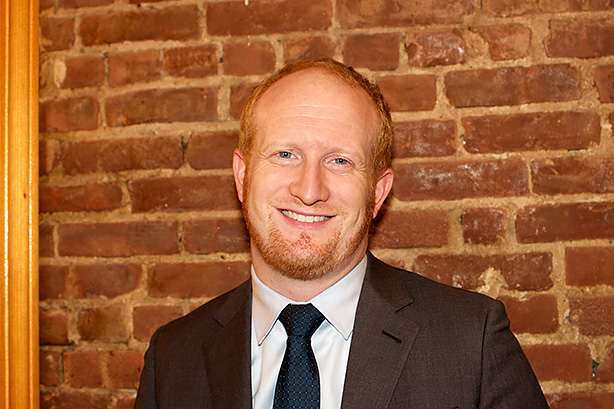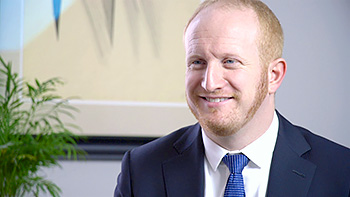
Ross MacDonald's experiences with Cornell's Prison Education Program gave him a big-picture view of serving populations. Image: provided.
Addressing mass incarceration from a health care angle
When many of his fellow Weill Cornell Medicine students were pondering what their specialty should be, Ross MacDonald '03 faced a dilemma. His undergrad experiences with Cornell's Prison Education Program made him interested in something bigger, but there was pressure to pick a specialty.
"Most of my residency interviews up to that point had involved exchanging pleasantries, but my residency interview at Montefiore Medical Center's social medicine program turned into an intense discussion, one that changed my life," says MacDonald, who was a biology and English major at Cornell. "At that time I assumed I wanted to specialize in infectious disease because I felt like specialization was a necessity. I didn't see a path for reaching the criminal justice population I cared about, but I learned that in social medicine this was something many people before me had thought about and made a career of."

Ross MacDonald, chief of medicine for Health + Hospitals Correctional Health Services in New York City. Image: provided.
Today, MacDonald is the chief of medicine for Health + Hospitals Correctional Health Services in New York City, overseeing medical care for the city jail system, including Rikers Island. In his position, he manages hundreds of employees, including approximately 150 doctors and physician assistants who care for people in the correctional system.
"It's a really exciting time to be doing this work because I see very tangible changes that have been made in a very short time," MacDonald says. "We're at a time in our society when people seem to realize that this system of mass incarceration has been detrimental to our country, and they are engaged in thinking about change."
While his position requires a mix of administrative duties, visioning for the department and clinical time with patients, MacDonald also serves as an assistant professor at the Albert Einstein College of Medicine at Montefiore. He has continued academic research and has published a number of papers on issues in correctional health care, including defining the needs of the frequently incarcerated, establishing a human rights agenda in correctional health and training workers on the "dual-loyalty" pressures that complicate care for patients in the correctional system.
"There are competing interests that physicians and health care professionals feel when the interests of their patients are at odds with the interests of a third party," like the correctional system, MacDonald says. Today, medicine is focused more than ever on shared decision-making and patient autonomy, but those can be difficult to provide in a correctional setting.
"These may be abstract concepts in training, but in our line of work, we wrestle with these issues all of the time," he says.
During the last two years, MacDonald has been absorbed in helping the city move from a contractor-based health care system in corrections to the creation of a new division of the city's public hospital network, which provides direct care to people in the correctional system.
"I think that it's both symbolically important that care is delivered by the city's safety net hospital system but also that functionally it works better," he says. The new system has also allowed his team to address ongoing problems by adding a new chief of addiction medicine, a new director of clinical education and a position focusing on palliative care and geriatrics.
"This also allowed me to recruit academic physicians who may not have been willing to work for a for-profit company, but believe in the mission of correctional health services," he says. He envisions bringing more medical residents into the jail to learn about mass incarceration and creating an environment where health care providers are "constantly learning and teaching each other," he says.
His own learning environment as an undergrad at Cornell was shaped by experiences in the Prison Education Program and by his English classes, MacDonald says. As an undergrad slogging through the premed curriculum, MacDonald recalls times he lost sight of the human element of health care and wondered if he was in the right major.
"The kind of personal connections I made with the students in the prison was analogous for me to the doctor/patient relationship," says MacDonald, who received his medical degree from Weill Cornell Medicine (then Weill Cornell Medical College) in 2008. "It absolutely changed the course of my life."
His English classes also allowed him to think about the reason he was pursuing a medical degree.
"The skills in humanism helped me think though why I was struggling with my path in medicine," he says. "Experiencing that perspective on the world gave me the lens that helped me understand what I really wanted."